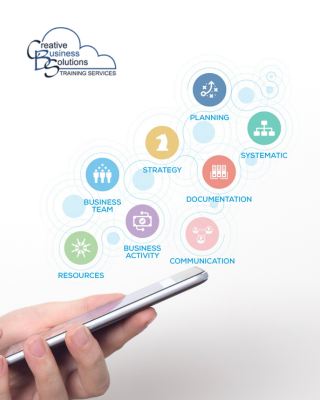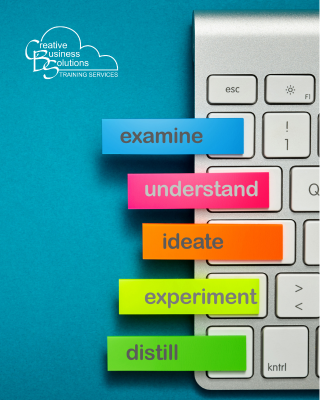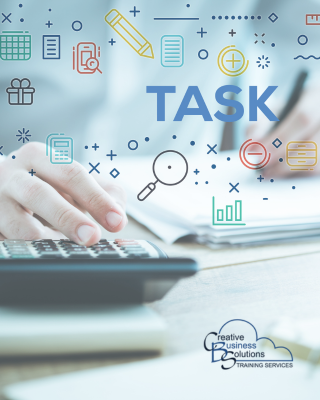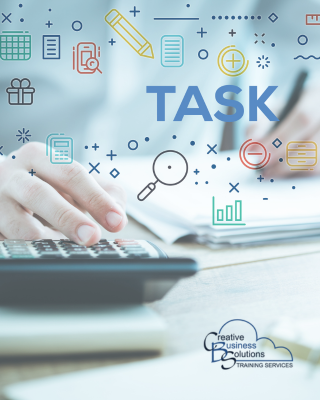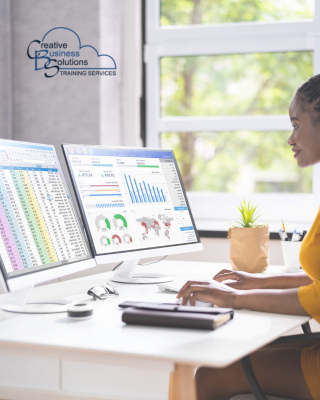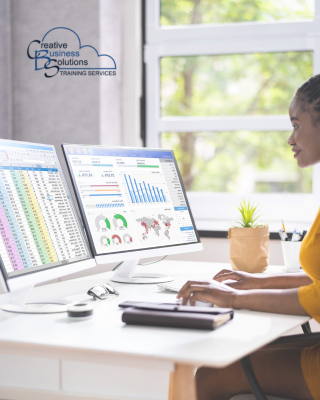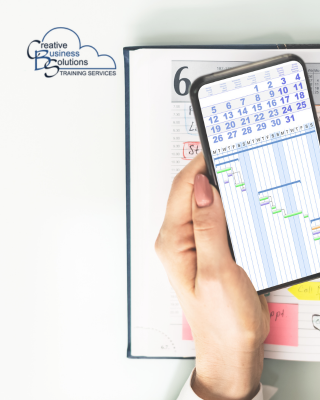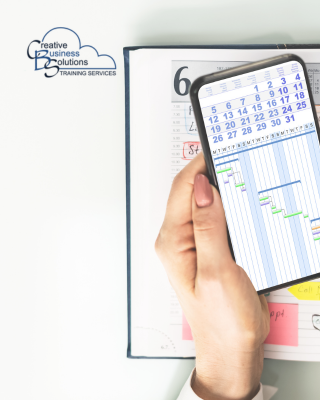
Introduction
Have you ever experienced that sinking feeling when your computer crashes while trying to access client files? Or have you wanted to work remotely, but all your client information is stored on a desktop computer or office server? These are familiar scenarios for many accounting professionals.
Now, imagine if there were a groundbreaking solution that could transform the way accounting and bookkeeping practices operate. That solution is cloud computing, which goes beyond utilizing cloud-based accounting software.
In this blog, we will explore why it's time to adopt digital transformation in accounting and bookkeeping practices and outline the fundamental advantages cloud computing offers for streamlining these practices.

The Challenges of Traditional Accounting or Bookkeeping Practices
Traditional accounting and bookkeeping practices face several challenges when it comes to desktop or server-based document processing. These challenges include:
1. On-premise servers, hardware, and software maintenance demands: Traditional accounting and bookkeeping practices often rely on on-premise servers, which require regular hardware and software maintenance. This configuration can be time-consuming and costly, diverting resources from core business activities.
2. Data security and backup concerns: Storing sensitive financial information on on-premise servers or desktop computers poses security risks. Without robust security measures, there is a higher risk of unauthorized access and data breaches. Additionally, ensuring regular data backups can be a challenge, leading to potential data loss in case of hardware malfunctions.
3. Lack of real-time collaboration and accessibility: On-premise servers or desktop computer data storage can limit real-time collaboration among team members, clients, and external partners. Accessing and sharing documents may be restricted to the office environment, hindering remote work and collaboration.
4. Limited scalability to accommodate growing client needs: Traditional accounting and bookkeeping practices may need help scaling their infrastructure to meet clients' evolving needs. Adding more on-premise servers and expanding hardware resources can be cumbersome and costly, especially for small and medium-sized practices.
These challenges underscore the need for modern solutions that offer enhanced security, real-time collaboration, accessibility, and scalability to adapt to the evolving landscape of the accounting and bookkeeping industry.

The Case for Cloud Computing
The case for cloud computing is strong on multiple fronts. The security features of cloud computing are comprehensive and essential, particularly for safeguarding sensitive financial information.
Cloud services provide data encryption, access controls, and regular backups as part of their robust security measures. These features protect financial data from unauthorized access and other security threats.
Additionally, cloud providers, such as Microsoft 365, make substantial investments in security, offering higher levels of protection than many individual practices can afford.
Furthermore, they often have security certifications and adhere to compliance standards, adding an extra layer of assurance regarding the safety of data stored on their platforms.
Cloud computing offers extensive accessibility benefits that revolutionize the way people work. One key advantage is the ability to work from any location, anytime, and use any device. This game-changing feature is particularly beneficial for remote teams, travel-loving or travel-dependent accounting professionals, and individuals with flexible work arrangements. The flexibility provided by cloud computing not only enhances productivity but also significantly contributes to improving work-life balance for employees.
Cloud platforms, like Microsoft 365, play a crucial role in fostering collaboration among team members, clients, and external partners. By providing a seamless environment for teamwork, these platforms streamline communication and facilitate document sharing, leading to improved workflows. Streamlined processes enhance productivity and minimize errors and delays in product delivery.
One convincing factor for seriously considering adopting cloud computing is its potential cost savings. By eliminating the need to invest in expensive hardware, software licenses, and IT maintenance, cloud services present an opportunity for significant cost reduction.
Furthermore, the pay-as-you-go nature of cloud services provides a flexible and scalable solution, enabling businesses to pay for and utilize resources based on their actual needs. This flexibility allows growing accounting and bookkeeping practices to efficiently manage their expenses by only paying for the resources they actually use rather than for a fixed capacity.
Cloud computing excels in efficiency, offering many benefits to accounting professionals. One key advantage is its ability to automate repetitive tasks, thereby liberating valuable time that can be redirected toward providing high-value services.
Notably, cloud-based software streamlines processes such as data entry, task tracking, reporting, and reconciliation or reviews, enhancing overall productivity. This efficiency boost empowers accounting professionals to concentrate on strategic initiatives, leading to improved business outcomes.
Moving accounting and bookkeeping practices to cloud computing offers several specific benefits that can significantly improve operations and client service:
1. Real-time Financial Reporting: Cloud computing enables access to up-to-date financial information from anywhere, at any time. This ease of access means accounting professionals can retrieve and analyze current financial data, allowing for more informed decision-making and strategic planning.
2. Automated Processes: Cloud-based solutions streamline tasks such as invoicing, expense tracking, and reconciliation. By automating these processes, accounting and bookkeeping professionals can save time and reduce manual errors, ultimately boosting efficiency and accuracy in financial management.
3. Improved Client Communication: Cloud computing facilitates the seamless sharing of documents, reports, and insights directly with clients. This enhanced communication allows real-time collaboration and transparency, strengthening the relationship between accounting professionals and their clients.
4. Data Security and Disaster Recovery: Moving to the cloud provides enhanced security measures and automatic data backups, protecting sensitive financial information from unauthorized access and potential loss due to system malfunctions. This enhanced security ensures that critical data is safeguarded and can be easily recovered in the event of an unforeseen disaster, such as a system failure.
5. Increased Efficiency and Productivity: By automating tasks through cloud-based solutions, accountants and bookkeepers can free up time for more strategic work. This increased efficiency enables accounting professionals to focus on providing high-value services to clients while minimizing time spent on repetitive administrative tasks.
In summary, transitioning accounting and bookkeeping practices to cloud computing delivers real-time financial reporting, automated processes, improved client communication, data security and disaster recovery, as well as increased efficiency and productivity. These specific benefits can empower accounting professionals to elevate their service delivery and adapt to the changing demands of the industry.

Addressing Concerns
Several concerns need to be addressed when transitioning to digital practices in accounting or bookkeeping firms.
Ensuring robust data security and privacy protection in the cloud is paramount in today's digital landscape. It is critical to thoroughly understand and assess the comprehensive security protocols that esteemed cloud service providers, such as Microsoft 365, implement to safeguard sensitive data.
Furthermore, a meticulous review of data ownership rights and the paramount importance of selecting a provider that adheres to stringent compliance standards, such as the Personal Information Protection and Electronic Documents Act (PIPEDA), General Data Protection Regulation (GDPR), and Health Insurance Portability and Accountability Act (HIPAA), is indispensable.
This proactive approach is vital in mitigating the risks associated with potential data breaches and privacy violations, especially when handling and storing confidential financial information.
When considering transitioning to the cloud, it's crucial to consider the initial costs involved, such as software licensing, training, and potential fees associated with data migration. Understanding and acknowledging these costs is essential for proper planning.
However, weighing these initial expenses against the long-term benefits, including cost savings and increased efficiency, is equally important. Focusing on the potential return on investment over time is vital, as it helps justify the transition and assess its overall impact on the organization.
It's worth noting that transitioning to new software may involve a period of adjustment as individuals familiarize themselves with the new system. Nonetheless, taking advantage of the intuitive interfaces and comprehensive training materials provided by top cloud platforms or independent trainers is essential. Doing so can significantly facilitate the switch to the new technology and reassure employees as they embrace the change.



